Online cultural event captures Filipino struggle for freedom
Online cultural event captures Filipino struggle for freedom
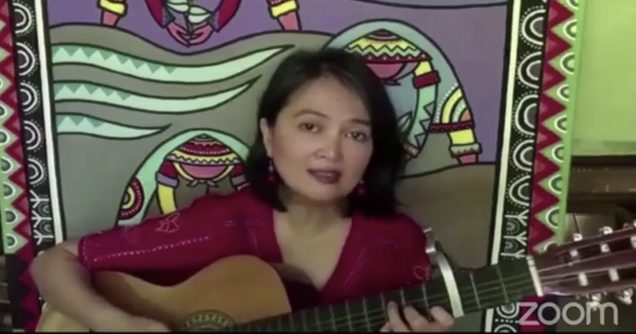
Dessa Quesada-Palm
By Lui Queaño
The Philippine Reporter
An online cultural event “Para sa Kalayaan “ was held last June 29 to rekindle the Filipino spirit of freedom and democracy in the 120th year of the Philippines’ Independence, as well as to commemorate Filipino Heritage Month in Canada.
The event, hosted by Malaya Canada, highlighted key moments in the Filipinos’ struggle for freedom through songs, poetry readings, and inspiring First Quarter Storm storytelling.
This one-of-a-kind cultural event showcased the talents of various community artists and poets, who depicted the lives and legacies of various Filipino activists and martyrs whose influences continue to resonate in the modern era.
Lilac Caña, a jazz and classical singer, gave an emotional performance of the well-known song “Bayan Ko” (which translates to “My Country”) with images of the Philippines in the 18th century as the backdrop. The song, written by the Spanish revolutionary general Jose Alejandrino, is one of the most popular patriotic songs in the Philippines. It was later translated into Tagalog by poet Jose Corazon de Jesus and has been used as a protest song by different political groups at various stages in Philippine history.

Charlene ‘Charley’ Magalit
Opera singer Charlene “Charley” Magalit and the UP Symphony Orchestra performed Joey Ayala’s “Manong Pawikan,” which highlighted the abundance of the Philippines’ marine resources, including fish and other aquatic products. Event co-host Olivia Camacho remarked “ Mayaman ang Pilipinas, pero bakit naghihirap ang mga Pilipino?,” as she introduced Magalit’s performance.
Dessa Quesada-Palm, a theatre actress and singer, sang “Alay kay Macliing Dulag,” a song composed and written by poet and playwright Dr. Nonilon Queano. The song was written as a tribute to Maclling Dulag, a respected elder of the Butbut tribe who led his people in defending and opposing the Chico River dam, which would displace 100,000 people in the Cordilleras. Macli-ing Dulag was killed in his home on the evening of April 24, 1980, by elements of the Philippine Army’s 44th Infantry Battalion. Following his death, April 24th was declared “Cordillera Day” to honour him and all the other martyrs who gave their lives in the struggle for the Cordillerans’ right to life, land, and self-determination.
Potrirankamanis, the artistic director of Kinding Sindaw, told the story of the Meranao indigenous peoples through legends, epics, myths, and unwritten history, culture, and tradition of the Southern Philippines in her interview about “Pananadem” (Remembering).
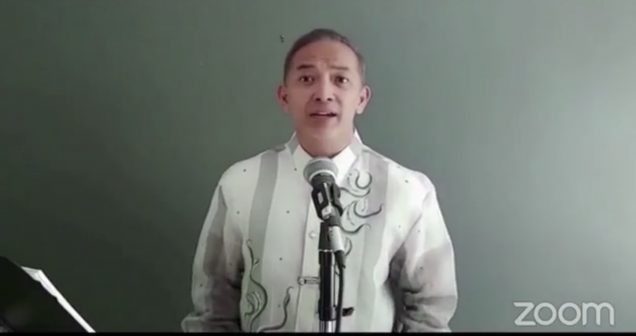
Leander Mendoza
For decades, the Moro people, like all other indigenous peoples in the Philippines, have been victims of state repression and exploitation. The bombing of Marawi Island during the previous Duterte regime demonstrated how the state treated the Moro people unfairly, killing their people, heritage, and culture.
The most moving story told at the event was about the victims of Martial Law and how Dr. Aloysius “Ochie” Baes’ songs inspired political detainees in Bicutan to fight for their freedom, which the state had taken away. Former political detainee Mila Astorga-Garcia recalled the life she shared with other political detainees tortured and imprisoned by the Marcos regime.
In describing her actual experience, Garcia said, “ In Bicutan, we were able to mingle in various activities we ourselves had organized, such as doing crafts work, fitness exercises, and sports games. Ochie organised a choir, which we joined, where he taught us to sing protest and patriotic songs. Among those songs were his own compositions, such as Huwad na Kalayaan and Mutya, an adaptation of the revolutionary song Kundiman ni Abdon. If he was not playing basketball, he was usually seen or heard strumming his guitar or arranging the melody for his lyrical compositions. The themes of his songs were the longing for freedom for the motherland and keeping on “with the people’s fight for real independence and democracy until victory is achieved.”

UP Symphony Orchestra
The stories of Martial Law victims who struggled and rebelled against the Marcos administration, like Garcia and Baes, would serve as an inspiration to future generations of Filipinos for a very long time.
An affirmation of how activists and martyrs continue to inspire the current generation of nationalists and activists to struggle for independence can be found in the song “Di pa tapos,” which Bong Ramilo initially wrote and sang during the occasion. In his song, he declares, “Tuloy na naman ang paglalakbay at magiipon ng mga salaysay, magpupunla ng bukang-liwayway, sa gabi magbabantay.”
The event concluded with a powerful poetry reading that included excerpts from Kerima Lorena Tariman’s poem “Sa apat na sulok,” a tribute to all political prisoners, and Amado V. Hernandez’s poem “Huling Hibik ng Pilipinas,” read by poet Patria Rivera, journalist Perfecto Caparas, children’s literature writer Mila Bongco, singer Crystal Villena, and community activist Orli Marcelino.
Some of the cultural numbers were drawn from various parts of Canada: Nova Scotia-based opera artist Leander Mendoza; singer-songwriter Manitoba-based Levy Abad Jr; and young artists and performers from Toronto: Jazz Wayde Manalang, Zharmaine Ante, Myka Jaymalin, Emerald Bandoles, composer-rapper Hanhan and other volunteer performers Thelma Aliado, Erie Maestro, Edmundo Muyot, Nova de Leon, Earl Dacara, Marissa Corpus, and Claudine Lucente.
Author is the organizer and curator of “Para sa Kalayaan.”
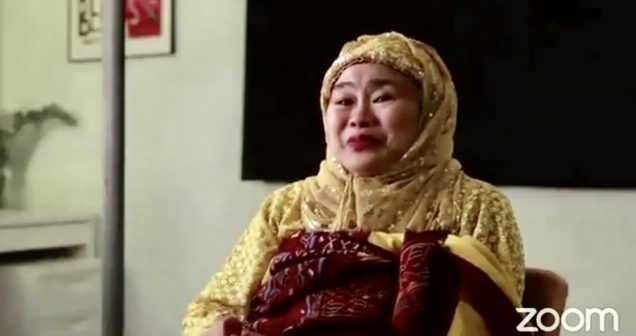
Potrirankamanis
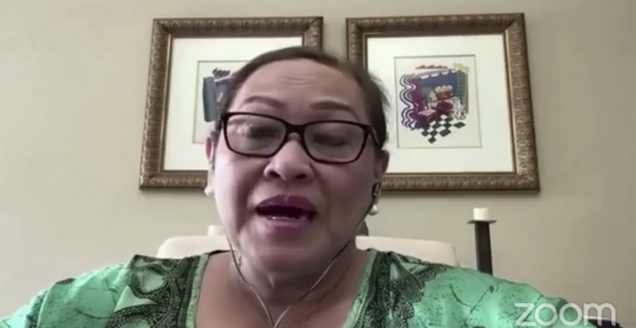
Marissa Corpus
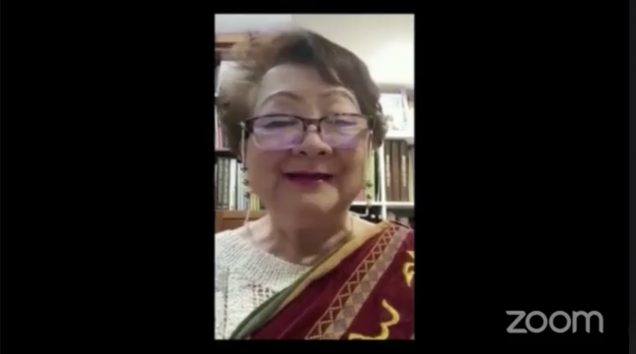
Olivia Camacho
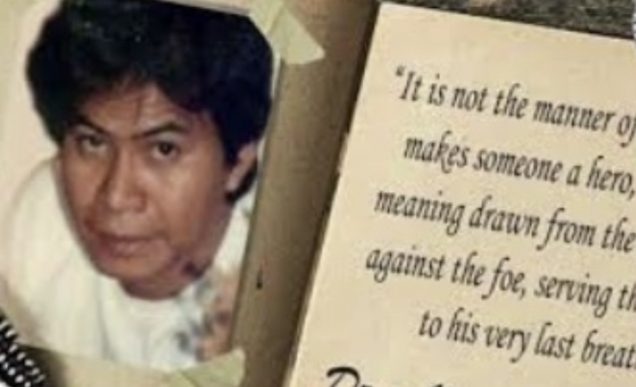
Ochie Baes
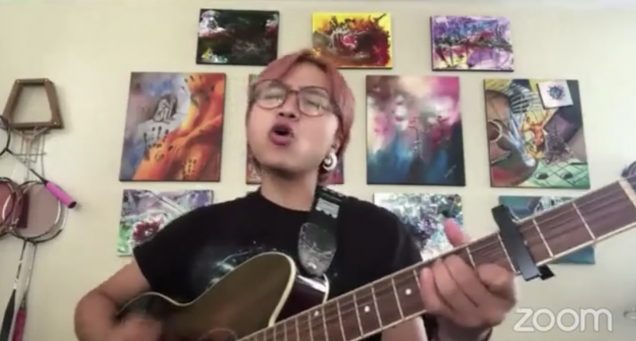
Jazz Wade Manalang
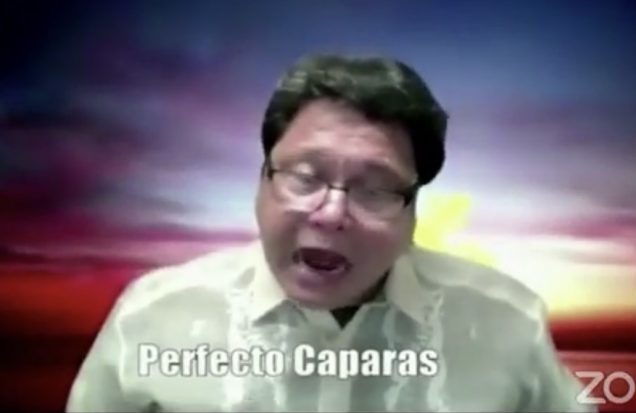
Perfecto Caparas
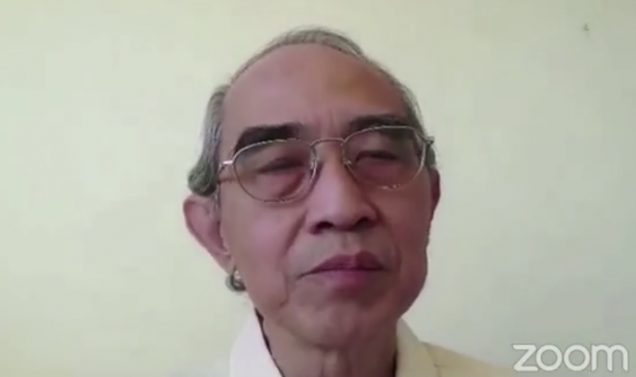
Ricky Esguerra
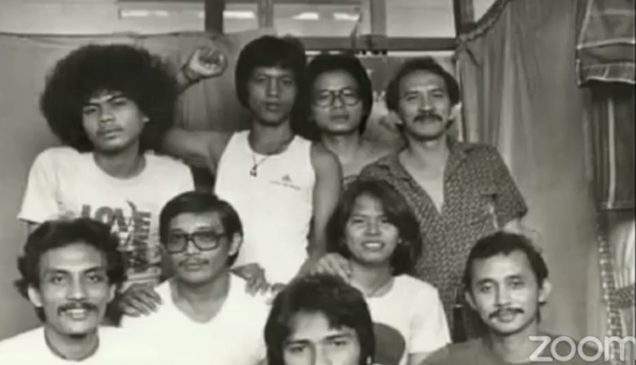
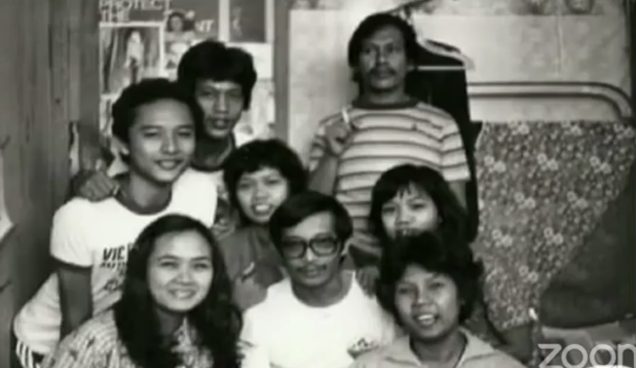
Marial law political detainees in 1979-1980 inside the Bicutan Rehabilitation Center, Taguig, Rizal.
(2 Photos from HG collection)
Comments (1)